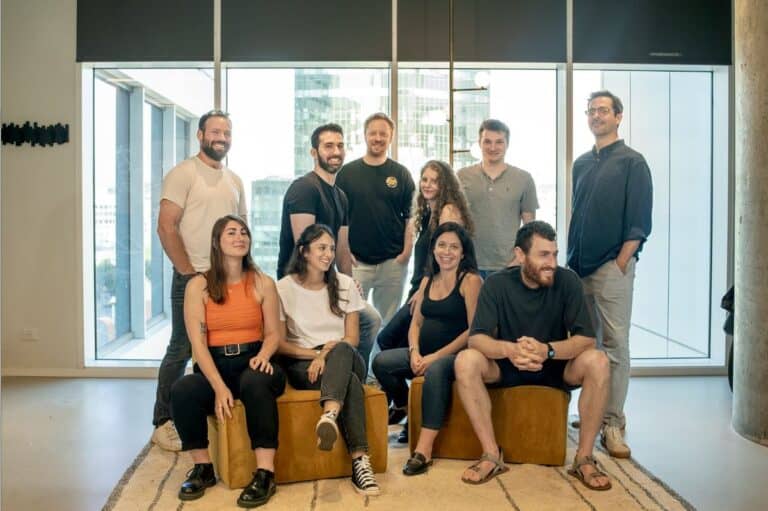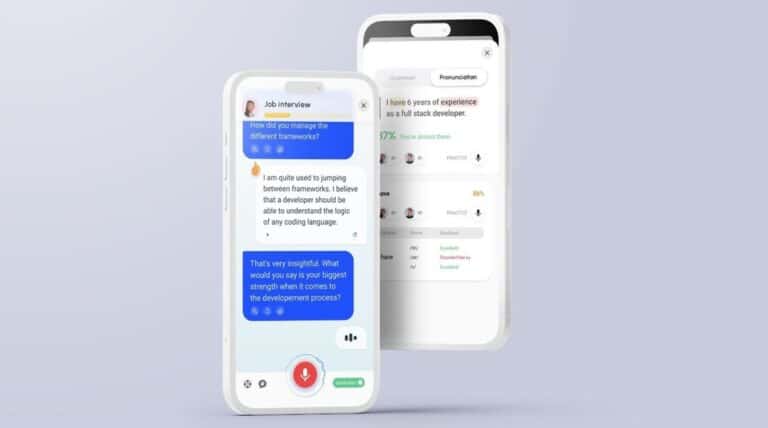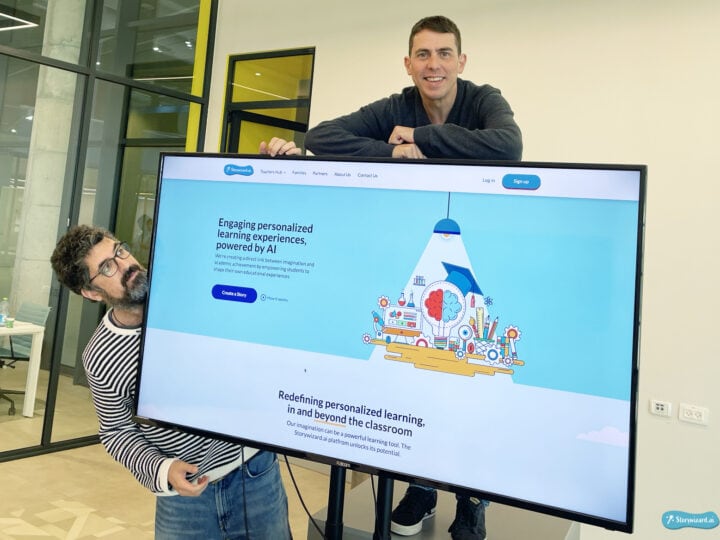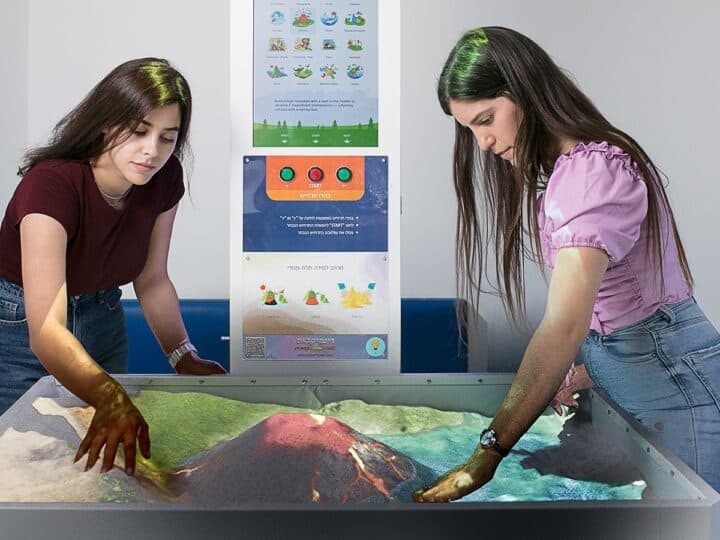For Roy Mor, improving his English was a frustrating experience. So was trying to teach himself Arabic and French. But while most people probably would have ditched the attempt, he cofounded a company to tackle the issue.
“The idea came from our personal frustration with learning languages. Personally speaking, I didn’t have any opportunity to speak English, and also no one to speak it to,” he tells ISRAEL21c.
“We thought it be great if everyone had an AI personal tutor in their pocket that they could just talk to about whatever they wanted, whenever they wanted.”
This thought led Mor and his best friend from his army days, Yonti Levin, to found Loora (“language” in Arabic), a generative AI-based app that enables users to converse in English on their preferred topic and practice situations such as job interviews or work meetings, all while receiving feedback on their grammar and pronunciation.
Technological breakthroughs in the field of natural language processing in 2020 allowed the two to start working on their dream project. As developers with a background in machine learning, they founded the company at the end of 2020 and began building the app themselves.

“The problem was that if your English was already above a very basic level, and the level that you need is a really high one, then no good solutions existed,” Mor notes.
“On the one hand, there are great apps, such as Duolingo, which is an amazing company, that bring you from not knowing anything to knowing a little bit. They’re aimed at casual learners, so if you want to travel to Italy and order coffee in Italian then they’re wonderful. But if you want to work in English, then they’re not relevant.”
Private tutors, on the other hand, are expensive. “And there’s a lot of friction – you need to set a lesson in advance, and talk to someone about something that you don’t necessarily want to. It also embarrasses people and prevents them from approaching the issue.”
Netflix for language learning
The cofounders see Loora as a kind of Netflix for language learning, aimed at young adults aged 17 to 45 who need proficient English for their studies or careers.
“Seventy-one percent of our students are doing it for professional reasons, because they feel that this is what prevents them from advancing at work or getting professional opportunities,” says Mor.

The company has thousands of customers all over the world, including in Europe, Israel and immigrants to the United States.
Providing them with a good and engaging experience, Mor notes, is not an easy task.
“It’s still very difficult to create a good experience that gives users value over time. You need the data to know what a good conversation is, when to give feedback, how to keep them engaged over time, how to build a conversation topic and how to manage the memory of it all,” he explains.
Significant growth
The core of the system uses a proprietary gen AI model that Loora built, trained and optimized specifically for the purpose of teaching English.
“English learners, for example, need teachers that manage a conversational journey of a year or two, and who keep them interested and do everything in a personalized manner, such as improving the level as the student progresses. The more data we have of student conversations and user specifications about what was good and what was less good, the better we can train the models to suit the target.”
Loora just emerged from stealth with $9.25 million in seed funding led by Israeli VC Emerge, with participation of the founders of Lightricks and some of the founders of ironSource, alongside angel investors.
Located in Tel Aviv, Loora has 12 workers in the fields of research, engineering and product, and is now putting together a marketing team.
“This year too we’re seeing very significant growth, and people are really happy with the product. The goal now is first of all to grow and to make the product accessible to more people. There are also countless more things we can add and improve to the product to make it better,” Mor says.
However, adding more languages isn’t an immediate goal.
“The need to learn English is almost an existential one,” says Mor, who uses the app himself to practice and prepare for important meetings.
“It’s not ‘nice to have,’ or a hobby, and often people need it for their livelihood and to progress in life, so that creates a very different sort of product,” Mor explains. “But in the future, we will have more languages. At the moment we’re also only on iOS, so we’ll be wanting to add Android, and perhaps also a B2B model.”
His primary objective to for users to feel that their English is improving and to gain confidence speaking in English with real people.
“We want them to go out into the world and be themselves in English, and not to feel that they have their hands tied behind their backs. For English not to hinder them or keep them back from fulfilling their dreams or aspirations or anything else that they’d want to achieve.”
For more information, click here.















